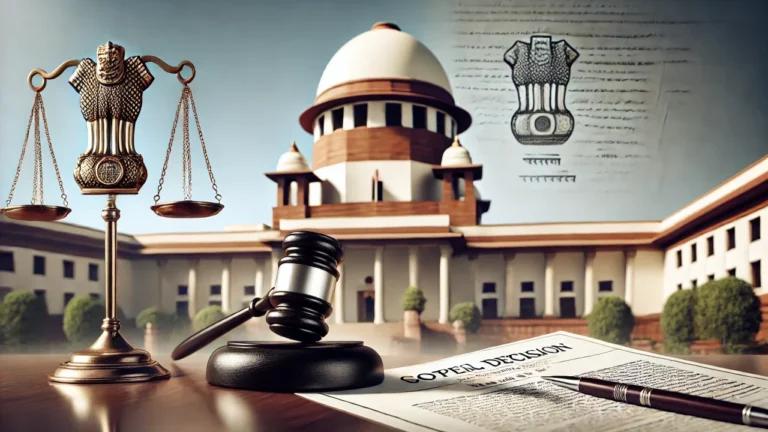The Supreme Court of India recently delivered a significant judgment in the case Union of India vs. Saleem Khan & Mohd. Zaid concerning bail applications under the Unlawful Activities Prevention Act (UAPA). The Court upheld the Karnataka High Court’s decision to grant bail to Saleem Khan (Accused No.11) while refusing bail to Mohd. Zaid (Accused No.20).
Case Background
The case originated from an FIR registered in January 2020 by Suddanguntepalaya Police Station, Bengaluru, based on information from the Economic Offence Wing. Seventeen individuals, including Saleem Khan and Mohd. Zaid, were named as accused. The charges involved serious offences under Sections 18, 18-A, 18-B, 19, 20, 38, and 39 of the UAPA, Section 120-B of IPC, and provisions of the Arms Act.
Read also:- Court Upholds Decision Lack of Medical Evidence Fails Marriage Annulment Case
The investigation was later transferred to the National Investigation Agency (NIA), which filed a charge sheet in July 2020. Saleem Khan was accused of links with an organisation called Al-Hind, while Mohd. Zaid faced allegations of links with banned terrorist organisations and activities on the dark web.
The Karnataka High Court in April 2022 granted bail to Saleem Khan but rejected Zaid’s bail plea. The Union of India challenged the bail order of Saleem Khan, while Zaid appealed against the rejection of his bail.
The High Court had observed that:
"Al-Hind is not a banned organisation under the UAPA schedule. Therefore, mere attendance in its meetings does not constitute a prima facie offence."
On the other hand, the Court noted strong material linking Mohd. Zaid to banned groups, dark web activities, and another UAPA case, which justified denial of bail.
The Supreme Court, led by Justice Vikram Nath and Justice K.V. Viswanathan, dismissed both appeals. The Bench agreed with the Karnataka High Court’s reasoning, emphasizing that the order was well-founded and reasonable.
The Court highlighted that Saleem Khan had already spent more than five years in custody without commencement of trial, and interference at this stage was not justified.
At the same time, the denial of bail to Zaid was upheld because of his alleged deeper involvement with proscribed organisations.
The Supreme Court expressed concern over the delay in trial, noting that more than 5.5 years had passed since arrest.
"Accused cannot be allowed to languish in jail without a fair and speedy trial," the Bench stated.
The Court directed the trial court to complete the proceedings within two years, considering that over 100 witnesses were listed. It also allowed the prosecution or trial court to seek cancellation of bail if Saleem Khan attempted to delay the process.
Case Title: Union of India vs. Saleem Khan & Mohd. Zaid















